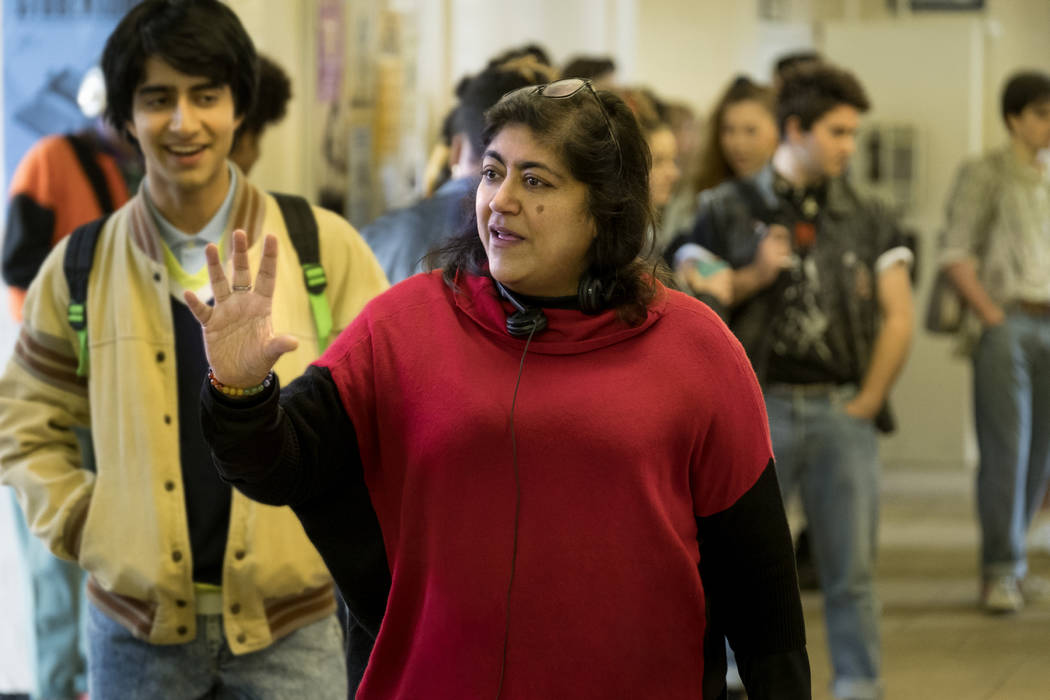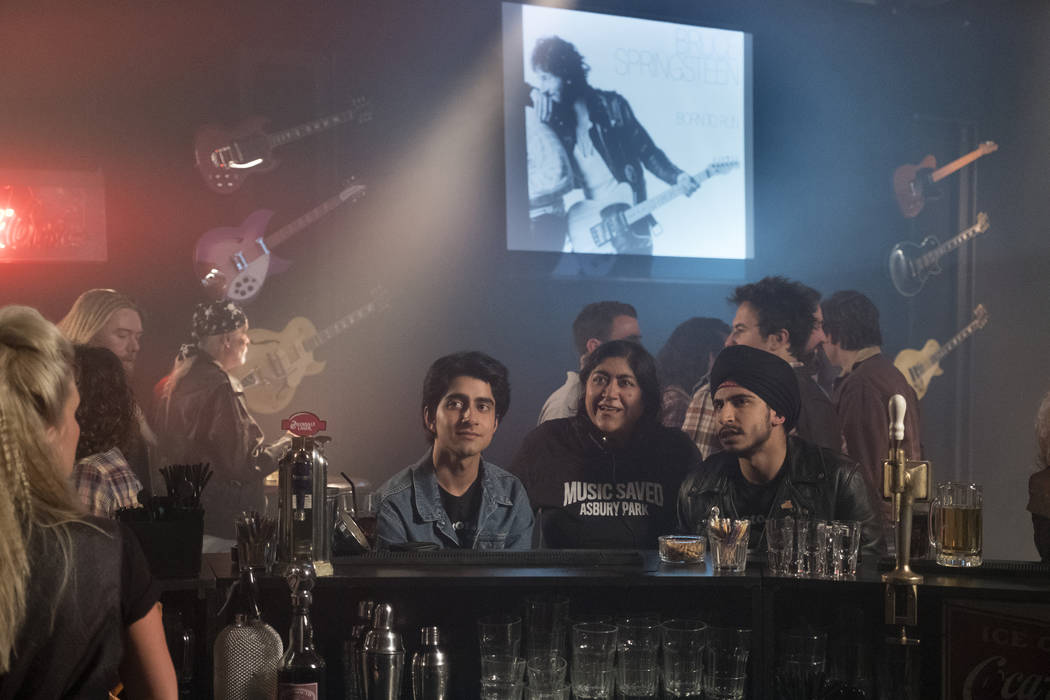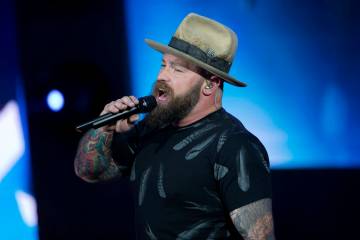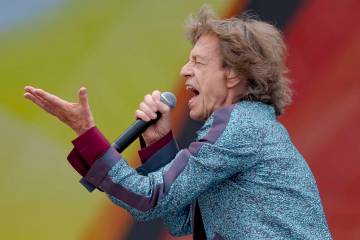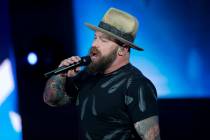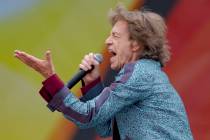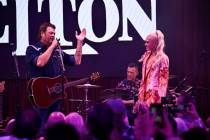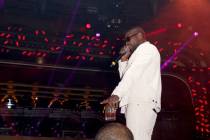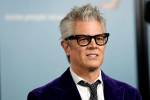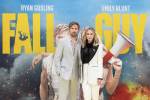Gurinder Chadha talks meeting Springsteen, putting together film
Bruce Springsteen was born to run. Luckily, so was English film director Gurinder Chadha.
She ran into the Boss on a red carpet several years ago. When you want to make a movie using all his early music and then see him in the flesh, you don’t walk up to him. You sprint.
“I ran over and seized the moment. I said, ‘Hi Bruce! You gotta help us out. My name is Gurinder. I’m a film director. I made ‘Bend It Like Beckham,’ ” she recalled. ‘I said, ‘We really want to make a film of the book written by Sarfraz Manzoor about his life and how your music inspired him.’ ”
“To which, Bruce looked at Sarfraz who was there with me and said, ‘Sounds good. I read that book. It’s beautiful. Talk to my manager,’ ” said Chadha, 59, one of the few female film directors of Indian origin.
The end result — “Blinded by the Light” — is one the biggest deals coming out of the Sundance film festival this year, as the film sold to Warner Bros. for $15 million. Early reviews are calling it “the feel-good movie of 2019.”
“Blinded” revolves around a British-Pakistani teenager named Javid (Viveik Kalra), an aspiring poet who meets with the disapproval of his strict father Malik (Kulvinder Ghir). Life is bleak in their small town in England circa 1987. Dad has been laid off from the local plant and to cope with the despair and local racism, Javid becomes obsessed with the rocking music and inspirational lyrics of Bruce Springsteen.
To show how much he supported the project, Springsteen didn’t just loan a few songs to Chadha. He gave her full access to his entire song catalog.
Review-Journal: What is your ideal Sunday?
Gurinder Chadha: Right now, it’s sleeping. We’ve been going to many cities to talk about the film, which is so exciting. But a Sunday sleeping a bit late sounds amazing. Add a good breakfast and cup of tea, a walk outdoors if it were cooler and then just spending time with my kids and family.
What happened after you encountered Springsteen on that red carpet?
Sarfraz and I went away and wrote a script just for Bruce. We sent it to his manager and then came the waiting period. Finally, Bruce sent this message to his manager and it read: “I’m all good with this. Give them what they want.” Our timing was good because he has really been looking at his legacy and the impact of it.
But the film isn’t just a tribute to the Boss.
I had to honor Bruce, but at the same time, I knew there would also be people watching this film who weren’t Bruce fans. I had to make sure I made a film that stood on its own. For the fans, I had to make them feel what they felt when they heard Springsteen’s music for the first time, and it really rocked their world. I just had to make sure the songs were placed where they really made sense to the fiber of this story of a young man growing up and looking beyond his town for his own dream.
You have a very rare song over the final credits.
There is a song by Bruce many have not heard called “I’ll Stand By You Always.” It was written for a Harry Potter film, but they didn’t use it. Even many huge Springsteen fans are saying, “I’ve never heard that song before and it’s beautiful.”
What was it like when you screened the film for Bruce?
We set up a private screening for just me, Bruce and his manager. The three of us sat in that dark room. I watched Bruce as he watched the film intensely. He laughed at all the right places, but at the end there was this silence. I didn’t know what to think. So, I walked up to the front of the room to put the lights up. Bruce walked over to me and gave me a big kiss. He put his arms around me and said, “Thank you for looking after me so beautifully and wonderfully. Don’t change a thing.”
You grew up first in Nairobi, Kenya, and then in West London. Were your parents as strict as those in the film?
My parents were quite open minded. I didn’t wear the traditional Indian clothing. I would sit with the men while the rest of the women were in the kitchen. I was an outspoken girl and teenager. I was also very lucky in that (they) didn’t have a problem when I said that I wanted to be a journalist. My dad said, “You have to make your own way. I’m proud of you. Stand on your own two feet and don’t ever rely on a man.”
You segued from journalist at the BBC to directing documentaries and then features. Why has it always been important for you to tell stories about Indian families?
I’m very conscious of the power of the camera to tell stories about people like me and people who look like me. There was a time when we weren’t really on the screen. We were in the margins. I want to show the universality of all of us regardless of race, culture, creed and class. I think people want to watch stories told from a slightly different perspective — stories that warm your heart. My goal is to bring more stories that unite us rather than divide us.
Would you ever direct a big Marvel film?
Why not? I’d love to do a really big film with all the bells and whistles. I think more doors are opening now for women directors, which is a good thing.
But it’s still tough for women directors.
Absolutely. There are more meetings now if you’re a female director. When it comes to actually pushing “go,” however, I do think that if a woman is in the room and a man is in the room — and they’re both equally qualified — I think the man will still get the gig. Slowly and surely, things need to change.
Have you kept up your relationship with Springsteen?
I did see Bruce’s Broadway show. I went backstage after the show and Bruce walked up to me to ask, “How is it going with the movie?” I said, “Great.” Then I was just standing there, so Bruce goes, “Come on, you want to take a picture. You know you do.” It was so lovely. Bruce put his arm around me. We took the picture and now it’s my screensaver on my computer.
So, every morning, you turn on the computer look at Springsteen and feel …
Inspiration.



